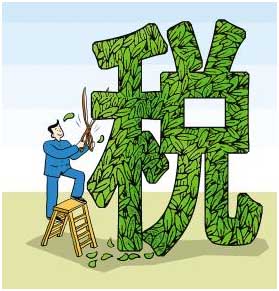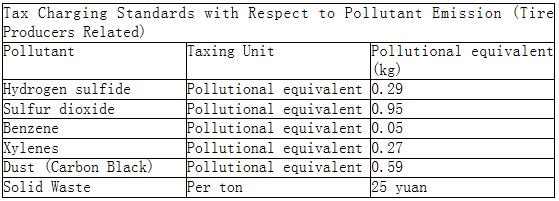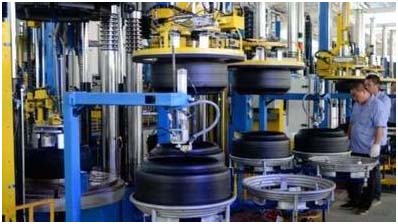How Environmental Protection Tax Affects Tire Companies
The 25th session of the 12th NPC Standing Committee voted through the Act of Environmental Protection Tax on Dec. 25, 2016.
The act will be implemented from Jan. 1, 2018. By then, new charging mechanism on pollution will bring huge impacts on pollutant releasing enterprises, such as tire producers.
The environmental protection tax is to control pollutant emission through taxes, those who create heavy pollution need to pay more taxes, while those who fulfill their duties of environmental protection will enjoy tax exemption or reduction.
Analysts believe that when the new tax is imposed, the tax revenue will increase considerably, while the environmental protection tax revenue is expected to reach 50 billion yuan annually.

If tire producers adopt unqualified techniques, large amount of noxious gases will be released to the air.
At the same time, the waste materials and waste oil will pollute the soil and water.
No doubt, quite a lot of tire producers will be the targets of the new tax act.
According to the new act, taxpayers shall apply for paying environmental protection tax to the tax authorities in which they released the pollutants.
The environmental protection tax will be calculated by month and shall be paid by quarter.

The act has also specified the conditions under which environmental protection taxes could be reduced.
If the density of air and water pollutants discharged by taxpayers is 30% lower than national or local standards for pollutant emissions, the taxpayers may pay 75% of the environmental protection tax.
If the density of air and water pollutants discharged by taxpayers is 50% lower than national or local standards for pollutant emissions, the taxpayers may pay 50% of the environmental protection tax.

As a tire producer, the first task is to eliminate outdated capacity and reduce pollution.
Besides, it should improve production technology and make efforts to build up smart factories.
For those whose capital are limited and who have objective difficulties, they should add more environmental protective facilities, and try to minimize the impacts generated from pollution.
- Tireworld Insight: Domestic tire makers eye overseas expansion
- Tireworld Insight: Price disparity severe between China's rubber exports and imports
- Tireworld Insight: China tire exports dependent on US market performance
- Tireworld Insight: SHFE rubber expected to move in tight range in short-term
- Tireworld Insight: Rubber futures to test near-term resistance at 15,000 yuan/tonne
- Tireworld Insight: China’s tire industry on track of rapid growth






